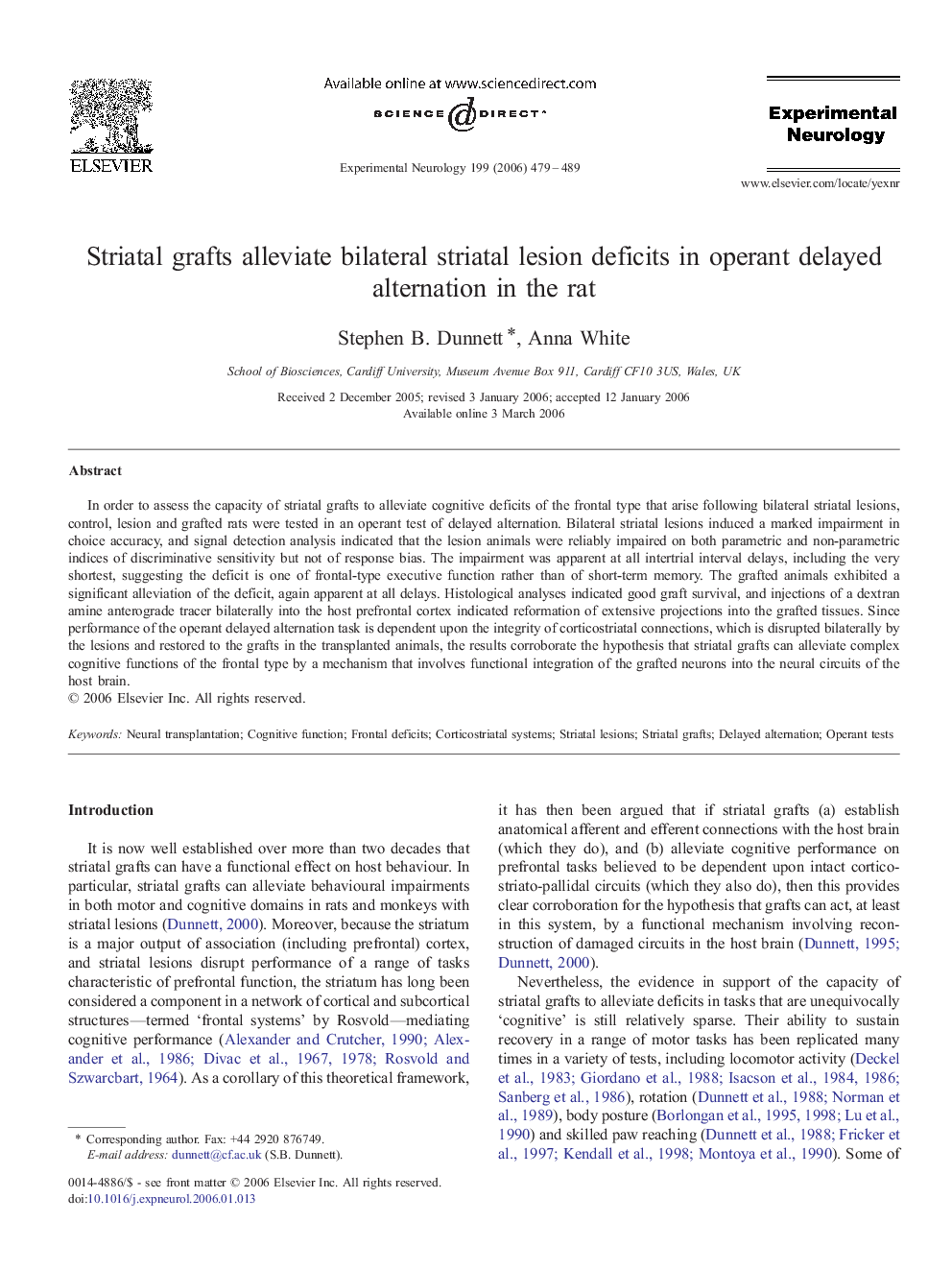| Article ID | Journal | Published Year | Pages | File Type |
|---|---|---|---|---|
| 3057581 | Experimental Neurology | 2006 | 11 Pages |
In order to assess the capacity of striatal grafts to alleviate cognitive deficits of the frontal type that arise following bilateral striatal lesions, control, lesion and grafted rats were tested in an operant test of delayed alternation. Bilateral striatal lesions induced a marked impairment in choice accuracy, and signal detection analysis indicated that the lesion animals were reliably impaired on both parametric and non-parametric indices of discriminative sensitivity but not of response bias. The impairment was apparent at all intertrial interval delays, including the very shortest, suggesting the deficit is one of frontal-type executive function rather than of short-term memory. The grafted animals exhibited a significant alleviation of the deficit, again apparent at all delays. Histological analyses indicated good graft survival, and injections of a dextran amine anterograde tracer bilaterally into the host prefrontal cortex indicated reformation of extensive projections into the grafted tissues. Since performance of the operant delayed alternation task is dependent upon the integrity of corticostriatal connections, which is disrupted bilaterally by the lesions and restored to the grafts in the transplanted animals, the results corroborate the hypothesis that striatal grafts can alleviate complex cognitive functions of the frontal type by a mechanism that involves functional integration of the grafted neurons into the neural circuits of the host brain.
